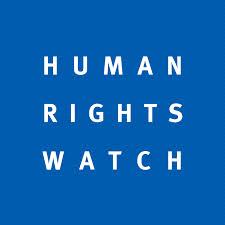Ammon News - AMMONNEWS - Human Rights Watch will open an office in Amman, Jordan, during 2014. The aim is to increase the engagement and advocacy with the Jordanian government on domestic and regional human rights issues. Jordan’s Board of Associations approved the registration of Human Rights Watch as a nongovernmental organization on May 21, 2014.
“Jordan’s registration of Human Rights Watch shows that it welcomes constructive engagement on some of the most critical issues of the day,” said Sarah Leah Whitson, Middle East and North Africa director at Human Rights Watch. “Our staff will engage with the Jordanian government and encourage it to carry out fully its long-promised reforms and respect basic rights.”
Jordan has taken some positive steps since King Abdullah II announced an ambitious reform agenda in early 2011, but it still needs to amend or remove legislation or revise practices that place impermissible limits on free expression, including press freedom and freedoms of association and assembly. It should also establish transparent accountability for police and intelligence officers accused of violence, and end discrimination against Jordanian women by permitting them to pass their nationality to their children.
In response to both the Iraq and Syria wars, Jordan has generously welcomed more than 1 million refugees, although the government’s exclusion of Palestinian refugees from these countries is a cause for concern.
Human Rights Watch has conducted research on the human rights situation in Jordan since the 1990s. It documented Jordan’s practice of arbitrary “administrative detention,” impunity for torture in Jordan’s prisons and detention facilities, and a legal regime that effectively encourages so-called honor crimes by allowing reduced sentences for attackers. In 2011 and 2012, Human Rights Watch conducted an advocacy campaign in Jordan to broaden public awareness of the human rights abuses faced by migrant domestic workers and to press for labor rights reforms.
“We look forward to deepening our relationship with Jordanian nongovernmental groups and private citizens for the common cause of human rights for all,” Whitson said. “We want to work closely with Jordanians on our work in Jordan, in the region, and around the world.”
Human Rights Watch is a nonprofit, nongovernmental human rights organization made up of more than 400 staff members around the globe. The staff consists of human rights professionals including country experts, lawyers, journalists, and academics of diverse backgrounds and 72 nationalities. Established in 1978, Human Rights Watch is known for its accurate fact-finding, impartial reporting, and effective use of media to highlight human rights abuses, and targeted advocacy to bring them to an end. It works in close partnership with local human rights groups worldwide.
Each year, Human Rights Watch publishes some 100 reports and hundreds more briefings on human rights conditions in approximately 90 countries, generating extensive coverage in national and international media. Human Rights Watch has 18 city committees around the world, including in Beirut.
Human Rights Watch is supported by contributions from private individuals and foundations worldwide. It accepts no government funds, directly or indirectly.
“Allowing Human Rights Watch to open an office is further proof that Jordan is far ahead of most of its neighbors in its progressive engagement with global institutions,” Whitson said. “Now the kingdom should move beyond regional comparisons and fulfill all of the human rights pledges it has made over the years.”
*HRW
